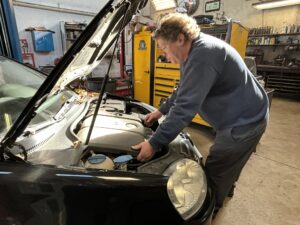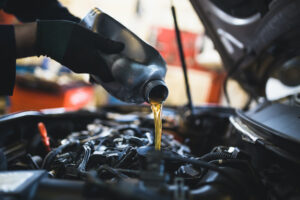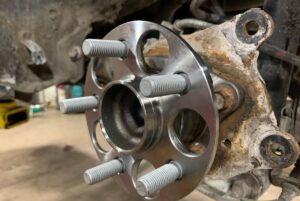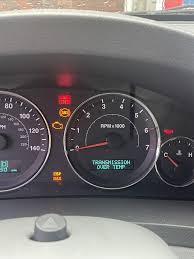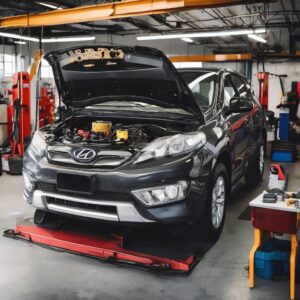For the secure running of your car, antifreeze is important. By removing the heat from your engine and cooling it with the outside air circulating into your radiator, it prevents the engine against overheating. In extreme weather, it even prevents water from freezing in the cooling machine. In addition, it works within your motor, piping and radiator as a rust inhibitor. Your antifreeze needs to be tested periodically, especially on older cars, as a significant under-hood fluid.
Many different things can cause an antifreeze leak:
A blown head gasket will make it possible to combine the coolant and engine oil. For your car, this is unsafe and may cause a significant catastrophic failure. You can see your fuel efficiency falling, your engine efficiency will decline and your emissions go sky-high, even though it doesn’t cause a failure right away.
A blown head gasket will also cause the coolant to spill into the ground and to the outside of the engine. This would result in the engine getting a low coolant volume and reduced cooling. Your engine will seize or die entirely if you drive except for a short period without adequate coolant.
An antifreeze leak will happen in your radiator via a window. A leak can be produced by deterioration of the radiator tubing or damage due to stones or debris. When the sealing gasket wears down, you can even see a leak between the tank and the radiator body over time.
At the multiple hose connection sites, you will even get antifreeze leakage. Your hoses become stiff and weak with time, and as a result, coolant will often leak out where your water pump, heater heart, radiator or motor joins them.
The outcome is the same no matter what the cause: possible harm to your car if you drive without the appropriate amount of coolant. In winter, this is not only a concern either. The word ‘antifreeze’ can make you think that it’s only essential in winter, but when it’s hot out, your antifreeze (also called engine coolant) is critical for removing the heat produced by your engine. All year long, the refrigerant needs to be in tip-top shape.
It might be necessary to secure the clip to avoid the leak in the event of a minor leak in the heater hose. However, you only have two choices with certain antifreeze leak conditions: replacing the hoses, gaskets or sections that are leaked or utilizing a bottle of Bar’s Leak for pricey, time-consuming physical fixes.
For different antifreeze leaks, we carry several distinct items, including these common solutions:
Cooling Device Maintenance, for general leakage of the cooling system
A effective stop leak product for your radiator, Radiator Stop Leak Focus
For technical power, long-term leak stoppage, Radiator Stop Leak Tablets
With our inexpensive, easy-to-use Bar’s Leaks goods, built to operate easily and deliver you years of leak-free driving, we will avoid mild to moderate antifreeze leaks.

